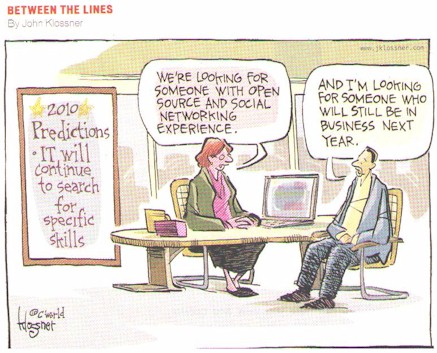Discussion: March 2, 2010 Ask The Headhunter Newsletter
The Q&A in today’s newsletter is a biggie: What are the hot spots in your job and your career that present opportunities for you to goose up your compensation? And, when you encounter such an opportunity, what should you do?
This is the topic of a new book I’m writing, and I’d like your help.
In the newsletter I discuss two hot spots where you can influence how a company will pay you: when you approach a company for a job and when you have a performance review. Note that, before you can ask to be paid more, you’ve got to do lots of advance work and be ready to demonstrate how you will make more money for a company.
Now I’ll tell you about the book I’m working on. I’m outlining a lot of hot spots where I believe there are distinct opportunities for talented people to boost what they get paid. No single one is going to make or break your compensation level, but if you recognize these hot spots and capitalize on them, then you should see an overall boost in your earnings.
Why am I telling you this? Because I need your advice and insight. I think many of these hot spots are revealed when you tell me about obstacles and hurdles you face as you work toward greater success in your work.
- What situations have you encountered where you think you could have boosted your pay, but you blew it (or didn’t exploit the opportunity as fully as possible)?
- What obstacles do employers create that you believe limit your pay artificially or unreasonably?
- In what ways have you gotten stuck in salary negotiations?
- Which compensation topics mess with your mind, leaving you feeling like you have no control over the outcome?
- Is there an experience that keeps nagging at you, where you think you might have influenced the outcome for the better but didn’t?
- What do you want to know about making more money?
This is a big topic. I don’t pretend to have my hands around it, but since it comes up a lot on Ask The Headhunter, I’m determined to tackle it in a more organized way. I want to know, What do you want to know?
Most people pick their jobs for reasons other than money. They want to work with a certain product or technology or they want to work in a certain culture. But let’s face it: We all work to make money so we can take care of those we love and to enjoy a good quality of life. If you want to stand out in your field, one of they key measures is how you get paid for the work you do. Knowing how to make as much money as you can is an important skill that should pay off for you and for your employer.
Please read today’s newsletter, then tell me what kinds of hot spots you’ve encountered—and how you handled them. How can I help you boost your compensation?
[
Update: Reader Svetla posed an interesting challenge in the comments section below. It’s so provocative that I think it merits a reply in a new posting. Here it is:
6 scenarios about making more money.]
.

